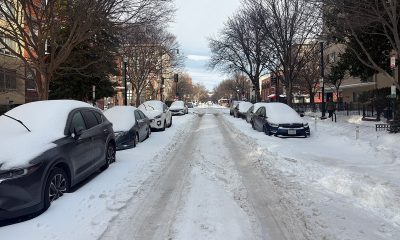Arts & Entertainment
National Cannabis Festival returns for 4/20 weekend
Annual concert/summit offers LGBT-inclusive education, music and more
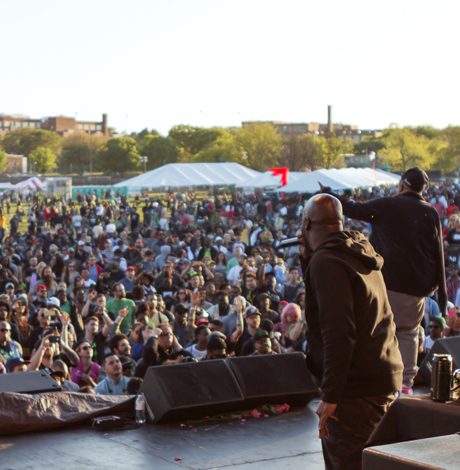
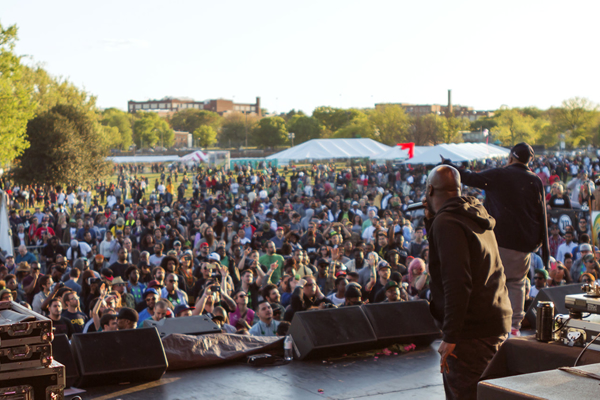
Last year’s National Cannabis Festival in Washington. (Photo courtesy NCF)
National Cannabis Festival
Saturday, April 21
Noon-8 p.m.
RFK Stadium
2400 E Capitol St., S.E.
$42-90
The National Cannabis Festival plans to bring music, education and good vibes to RFK Stadium with plenty of LGBT support.
The festival was the brainchild of Caroline Phillips who envisioned a cannabis event that was more affordable than the typical cannabis trade show. Phillips also wanted a space for people to learn about advocacy groups that have worked toward the legalization of cannabis nationwide for decades. In 2015, the inaugural National Cannabis Festival, founded and executive produced by Phillips, welcomed an estimated 5,000 attendees for its all-day event that included a concert from De La Soul.
This year marks the festival’s third annual event, which is expected to bring in an estimated 10,000 attendees for music, games, contests, food and education sessions.
Legendary hip hop group Cypress Hill will headline the all-day concert, which will include performances from reggae artist See-I and newcomer Beau Young Prince. Local artists will also take the stage including go-go band Backyard Band, DJ Ayes Cold, indie-soul band Oh He Dead, Names and Marlee. Samy K and Reesa Renee will host the concert.
For attendees more interested in policy, the festival also hosts the National Cannabis Policy Summit on Friday, April 20 at the Newseum (555 Pennsylvania Ave., N.W.). There will be speakers and panels such as “All the Buzz: How Does Media Portrayal Impact the Future of Cannabis?,” “The Exit Drug: Can Medical Cannabis End the Narcotics Epidemic?” and more. Registration is free.
Laila Makled was running the D.C. chapter of Women Grow, a women’s business cannabis networking organization, when she was introduced to Phillips. Interested in further pursuing a career in cannabis advocacy, Makled came on board as co-chair of the National Cannabis Festival Advocacy Committee. Makled says that throughout the festival there will be speeches from activists and leaders including Congresswoman Eleanor Holmes Norton (D-District of Columbia), D.C. Council member At-Large Robert C. White Jr., Maryland Del. David Moon and Congresswoman Tulsi Gabbard (D-Hawaii).
For Makled, mixing education throughout the concert is an ideal way to let attendees have fun but still learn cannabis policy.
“We want those people who are just coming to chill, smoke and listen to music to come in and see that we have an education pavilion where we’re having policy talks all day. We have an advocacy pavilion where they can go talk to the advocacy groups, sign up for email lists and get involved on a local level,” Makled says. “With all of those things they really have no choice but to walk out with a little extra knowledge than they had before. It’s ingrained into the festival.”
The Weedmaps Educational Pavilion will give some of that knowledge with lessons on cannabis legalization and the cannabis industry. Guests can also peruse the Bulb Wellness Pavilion where they can speak with medical professionals, holistic medicine practitioners, yoga instructors, dispensary owners and more.
When attendees aren’t learning about cannabis health, policy or listening to music, they can wander through the Exhibitor Fair, which features more than 70 exhibitors from around the United states. The D.C. Glass Gallery General Admission Lounge will have high-end pipes, accessories and activities throughout the day.
Guests can stop by the Hempworx Munchine Zone for snacks, beverages and free water. Other on-site activities will include lawn games, a photo booth and game zone.
The LGBT community will be well represented at the festival with LGBT-identifying speakers and LGBT-friendly vendors.
Statistically, the LGBT community has been more accepting of cannabis usage than heterosexuals. According to a 2014 study conducted by the Colorado Department of Public Health and Environment, 30 percent of LGBT Coloradans had consumed cannabis in the past month compared to 12.9 percent of heterosexuals. And 64.4 percent of LGBT respondents surveyed also said that they had consumed cannabis in their lifetime compared to 48.7 percent of straight respondents.
A study conducted by the General Social Survey also reports that in 2016, 80 percent of LGBT Americans supported the legalization of cannabis compared to 58 percent of heterosexuals.
Makled, who identifies as queer, says that for her the LGBT community and the cannabis community share a common stigma by society.
“I think there’s a natural connection between the cannabis movement and the LGBTQ movement. I had come out at a very young age,” Makled says. “I was 16. I realized I wanted to pursue a career in advocacy and business within cannabis. It was a whole other coming-out process. Because both the cultures have been living on the fringe of society and have been forced to celebrate behind closed doors. Not only are you having to come out saying, ‘I’m gay’ but also coming out saying, ‘I support consuming and legalizing cannabis and criminal justice reform.’”
LGBT participants this year include D.C. Vote’s Barbara Hemlick; Get Hemp Butter’s Kyla Hill; Marijuana Policy Project’s Kate Bell; Hemp Kettle Tea Company, a queer-owned indy tea company; Jenn Michelle Pedini from Virginia NORML; and Drug Policy Alliance’s Queen Adesuyi.
Makled hopes that more widespread cannabis legalization and criminal reform will lead to people becoming more open about cannabis usage.
“I think like any group of people or culture there’s a need and desire to celebrate that culture. That’s exactly what the National Cannabis Festival is. It’s the perfect intersection of culture, advocacy, arts and music. More people would come out of the green closet, which people compare coming out of the LGBTQ closest, to coming out of the cannabis closest. The more people are comfortable, the more people realize the medicinal and social benefits of cannabis, the more people will start to come out,” Makled says.
a&e features
Transmission DC breathes new life into a storied sound space
A fresh home for boundary-pushing culture on H Street

Late last year, phoenix-style, a fresh home for boundary-pushing culture arose on the H Street corridor. Transmission DC – a queer, trans, and POC-owned, operated, and centered community-focused venue – powered on in the former home to the Rock & Roll Hotel (famously, not a hotel, but very much rock & roll). Transmission (1353 H St., N.E.) arrives secure in its mandate – or even birthright – to provide a place to celebrate creativity and music through a lens of inclusivity and respect.
Transmission’s team brings experience, but also representation. Owners/partners Kabir Khanna (who is also programming director), Katii B, Ellie McDyre, and Kelli Kerrigan together previously managed 618 productions, a venue in Chinatown, crafting “some of D.C.’s freakiest parties, raves, and mosh pits” they note.
They packed up operations last fall to a space curated specifically for D.C.’s underground music and culture scene, building their efforts in Chinatown to bring in more fans in queer and POC circles.
Transmission, Khanna points out, is built on DIY values. In the music scene, DIY means that promoters and organizers – often disconnected from the mainstream and part of marginalized communities – build shows and programs collaboratively, but independently from institutions, supporting each other as smaller, independent venues close. Here, Transmission aims to ensure that those putting together these underground inclusive shows have a more permanent and stable home, can have access to resources, and can provide more sustainable income to artists. “We’re trying to get more people to support and enjoy the music, and also give artists and organizers within the DIY community more structure and a larger cut,” says Khanna.
Khanna also notes that Transmission operates “under the principles of safety, inclusivity, and respect.” McDyre added that even at venues that claim inclusivity, that statement might not take place in practice. We’re “not just pitting up a rainbow flag,” says McDyre, but as some of the owners are trans and POC, audiences can see themselves reflected at the top.
Much like the DIY nature of the music community, the Transmission owners brought a DIY ethos to turning around their space.
In March 2020 – the height of COVID lockdowns – Rock & Roll Hotel suddenly shuttered, though not due to the pandemic; instead, the venue claimed that decreasing sales and increasing competition led to the closure. For 14 years, it was the central spot for cheap beer and lesser-known and celebrated acts. The space stood vacant for more than five years, until Transmission turned the power back on.
“When we got into the space, it was effectively abandoned for years,” says Khanna. “There was a ton of mold, and paint primer covering all surfaces. It was nearly falling apart.” Khanna noted that many music venues like this one, regardless of how well it was maintained, “get the shit kicked out of it,” given the nature of shows. The team called in mold removal contractors, ripped up most of the floorboards, and started fresh.
Transmission’s first floor is styled as a stripped-down black box: the better to take in the music. “It’s minimal on purpose to act as a canvas for set design and music,” without a specific aesthetic, says Khanna. Moving upstairs, the second floor has been opened up, removing some walls, and now has a larger dance area than the first floor. Beyond the first two performance levels, and a holdover from Rock & Roll Hotel, is the rooftop. Though without a stage, the rooftop space is filled with murals splashed across the walls, with a full bar. Transmission’s current capacity is 496, but the team is looking to grow that number. Transmission will also leverage the full kitchen that Rock & Roll Hotel operated, bringing in Third Hand Kitchen to offer a variety of food, including vegan and vegetarian options.
Khanna pointed out an upcoming show reflective of Transmission’s inclusive ethos: Black Techo Matters on Feb. 27. The event is set to be “a dynamic, collaborative night of underground electronic music celebrating Black History Month.” Khanna says that techno came from Black music origins, and this event will celebrate this genesis with a host of artists, including DJ Stingray 313, Carlos Souffront, and Femanyst.
Movies
Moving doc ‘Come See Me’ is more than Oscar worthy
Poet Laureate Andrea Gibson, wife negotiate highs and lows of terminal illness

When Colorado Poet Laureate Andrea Gibson died from ovarian cancer in the summer of 2025, the news of their passing may have prompted an outpouring of grief from their thousands of followers on social media, but it was hardly a surprise.
That’s because Gibson – who had risen to both fame and acclaim in the early 2000s with intense live performances of their work that made them a “superstar” at Poetry Slam events – had been documenting their health journey on Instagram ever since receiving the diagnosis in 2021. During the process, they gained even more followers, who were drawn in by the reflections and explorations they shared in their daily posts. It was really a continuation, a natural evolution of their work, through which their personal life had always been laid bare, from the struggles with queer sexuality and gender they experienced in their youth to the messy relationships and painful breakups of their adult life; now, with precarious health prohibiting a return to the stage, they had found a new platform from which to express their inner experience, and their fans – not only the queer ones for whom their poetry and activism had become a touchstone, but the thousands more who came to know them through the deep shared humanity that exuded through their online presence – were there for it, every step of the way.
At the same time, and in that same spirit of sharing, there was another work in progress around Gibson: “Come See Me in the Good Light,” a film conceived by their friends Tig Notaro and Stef Willen and directed by seasoned documentarian Ryan White (“Ask Dr. Ruth”, “Good Night, Oppy”, “Pamela, a Love Story”), it was filmed throughout 2024, mostly at the Colorado home shared by Gibson and their wife, fellow poet Megan Falley, and debuted at the 2025 Sundance Film Festival before a release on Apple TV in November. Now, it’s nominated for an Academy Award.
Part life story, part career retrospective, and part chronicle of Gibson and Falley’s relationship as they negotiate the euphoric highs and heartbreaking lows of Gibson’s terminal illness together, it’s not a film to be approached without emotional courage; there’s a lot of pain to be vicariously endured, both emotional and physical, a lot of hopeful uplifts and a lot of crushing downfalls, a lot of spontaneous joy and a lot of sudden fear. There’s also a lot of love, which radiates not only from Gibson and Falley’s devotion and commitment to being there for each other, no matter what, but through the support and positivity they encounter from the extended community that surrounds them. From their circle of close friends, to the health care professionals that help them navigate the treatment and the difficult choices that go along with it, to the extended family represented by the community of fellow queer artists and poets who show up for Gibson when they make a triumphant return to the stage for a performance that everyone knows may well be their last, nobody treats this situation as a downer. Rather, it’s a cause to celebrate a remarkable life, to relish friendship and feelings, to simply be present and embrace the here and now together, as both witness and participant.
At the same time, White makes sure to use his film as a channel for Gibson’s artistry, expertly weaving a showcase for their poetic voice into the narrative of their survival. It becomes a vibrant testament to the raw power of their work, framing the poet as a seminal figure in a radical, feminist, genderqueer movement which gave voice to a generation seeking to break free from the constraints of a limited past and imagine a future beyond its boundaries. Even in a world where queer existence has become – yet again – increasingly perilous in the face of systemically-stoked bigotry and bullying, it’s a blend that stresses resilience and self-empowerment over tragedy and victimhood, and it’s more than enough to help us find the aforementioned emotional courage necessary to turn what is ultimately a meditation on dying into a validation of life.
That in itself is enough to make “Come See Me in the Good Light” worthy of Oscar gold, and more than enough to call it a significant piece of queer filmmaking – but there’s another level that distinguishes it even further.
In capturing Gibson and Falley as they face what most of us like to think of as an unimaginable future, White’s quietly profound movie puts its audience face-to-face with a situation that transcends all differences not only of sexuality or gender, but of race, age, or economic status as well. It confronts us with the inevitability few of us are willing to consider until we have to, the unhappy ending that is rendered certain by the joyful beginning, the inescapable conclusion that has the power to make the words “happily ever after” feel like a hollow promise. At the center of this loving portrait of a great American artist is a universal story of saying goodbye.
Yes, there is hope, and yes, good fortune often prevails – sometimes triumphantly – in the ongoing war against the cancer that has come to threaten the palpably genuine love this deeply-bonded couple has found together; but they (and we) know that, even in the best-case scenario, the end will surely come. All love stories, no matter how happy, are destined to end with loss and sorrow; it doesn’t matter that they are queer, or that their gender identities are not the same as ours – what this loving couple is going through, together, is a version of the same thing every loving couple lucky enough to hold each other for a lifetime must eventually face.
That they meet it head on, with such grace and mutual care, is the true gift of the movie.
Gibson lived long enough to see the film’s debut at Sundance, which adds a softening layer of comfort to the knowledge we have when watching it that they eventually lost the battle against their cancer; but even if they had not, what “Come See Me in the Good Light” shows us, and the unflinching candor with which it does so, delivers all the comfort we need.
Whether that’s enough to earn it an Oscar hardly matters, though considering the notable scarcity of queer and queer-themed movies in this year’s competition it might be our best shot at recognition.
Either way, it’s a moving and celebratory film statement with the power to connect us to our true humanity, and that speaks to a deeper experience of life than most movies will ever dare to do.
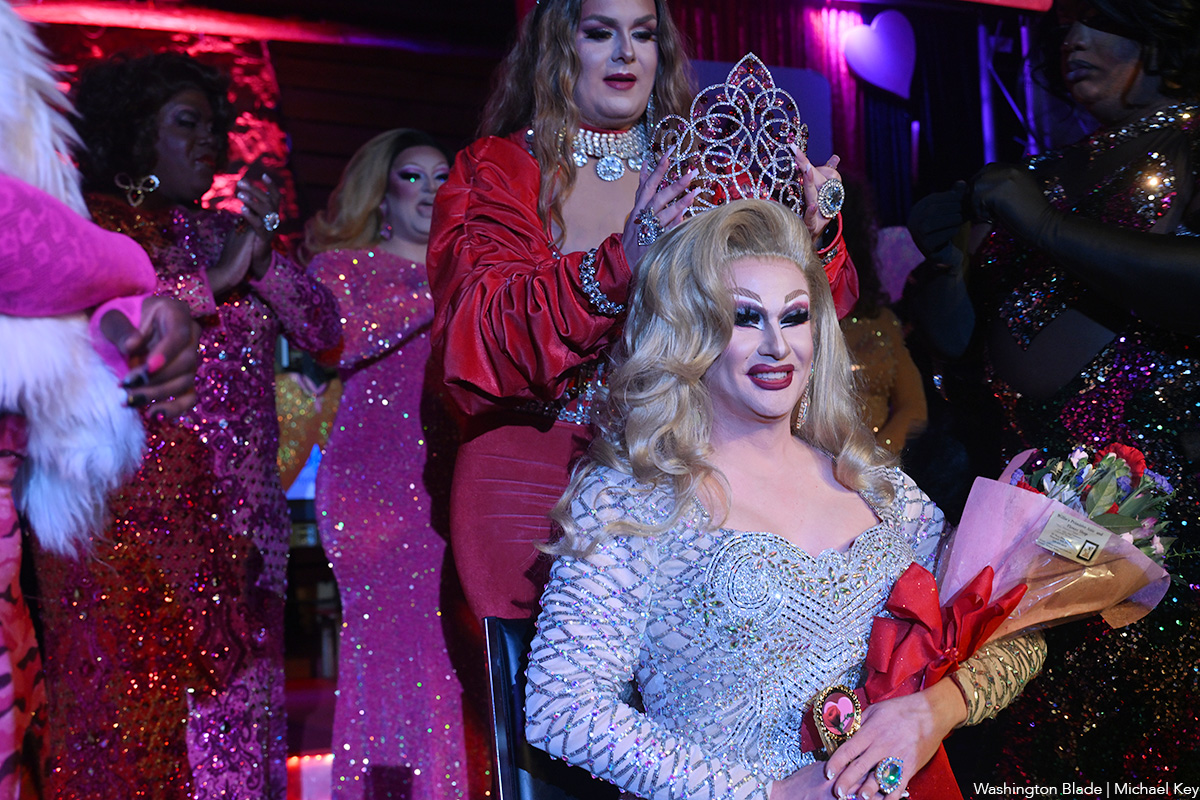
The 44th annual Queen of Hearts pageant was held at The Lodge in Boonsboro, Md. on Friday, Feb. 20. Six contestants vied for the title and Bev was crowned the winner.
(Washington Blade photos by Michael Key)
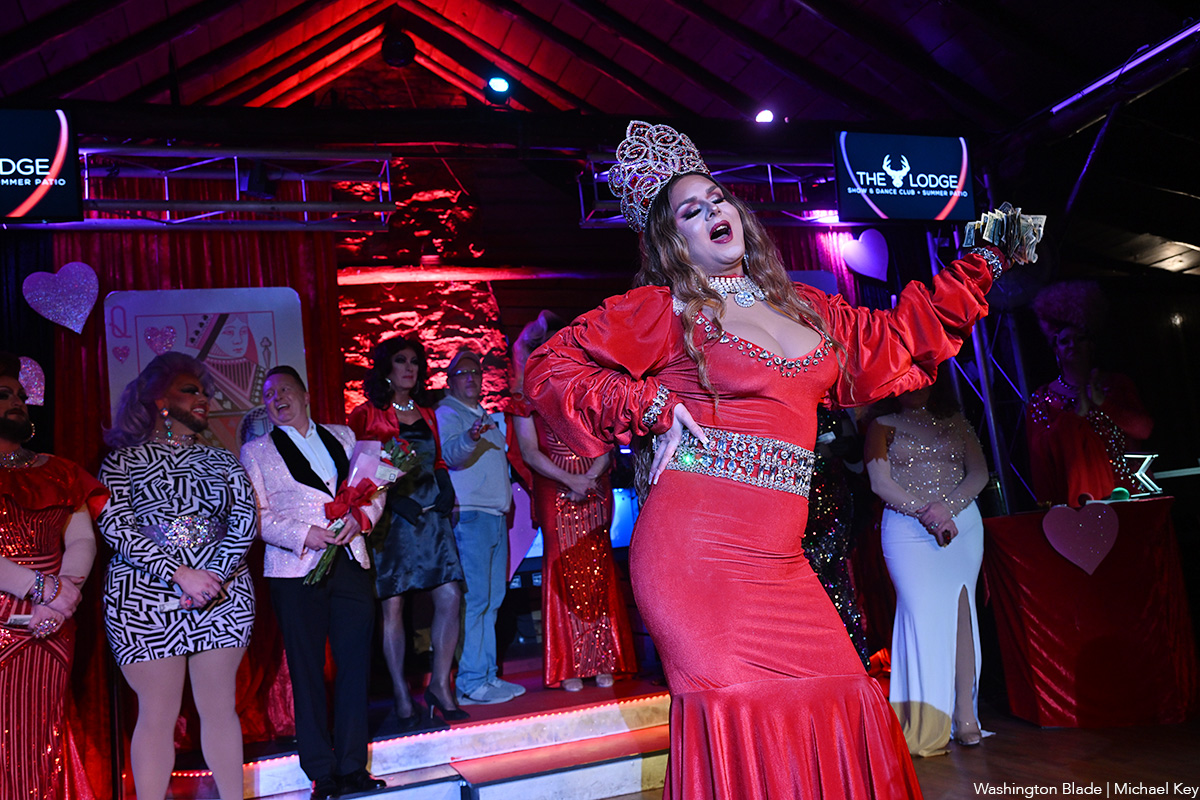
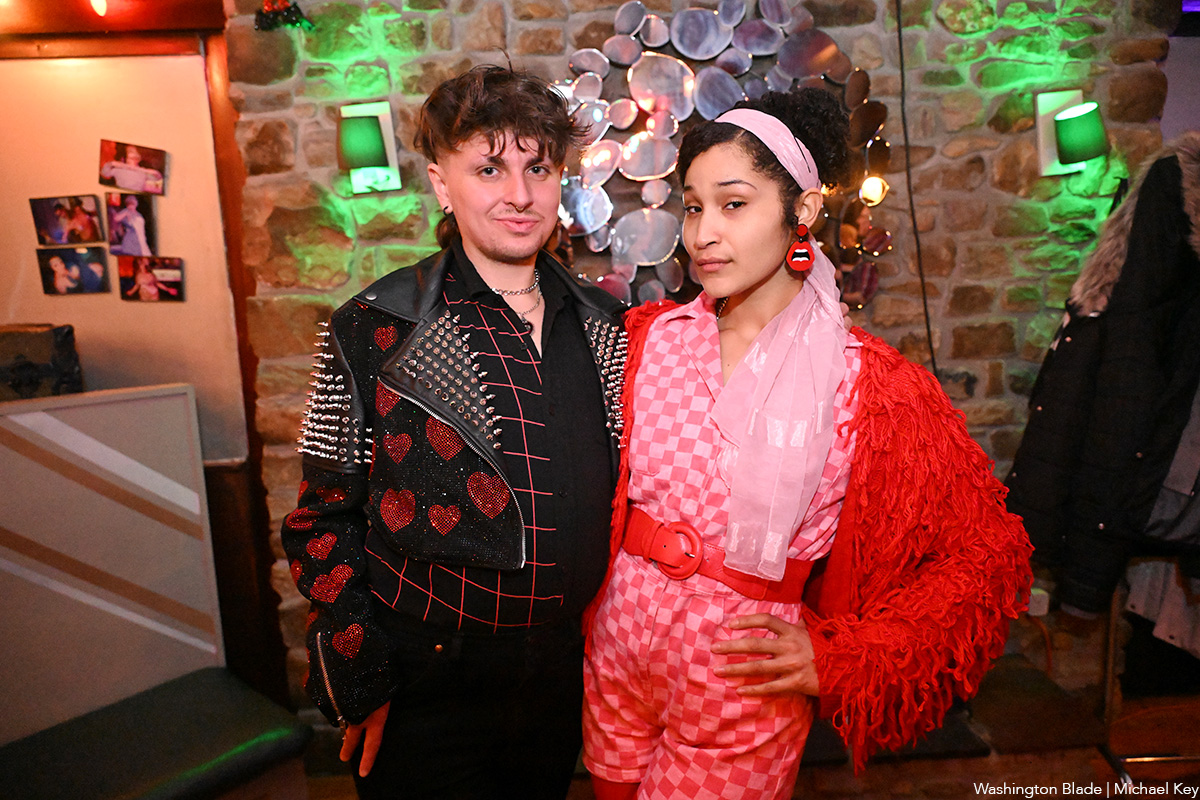
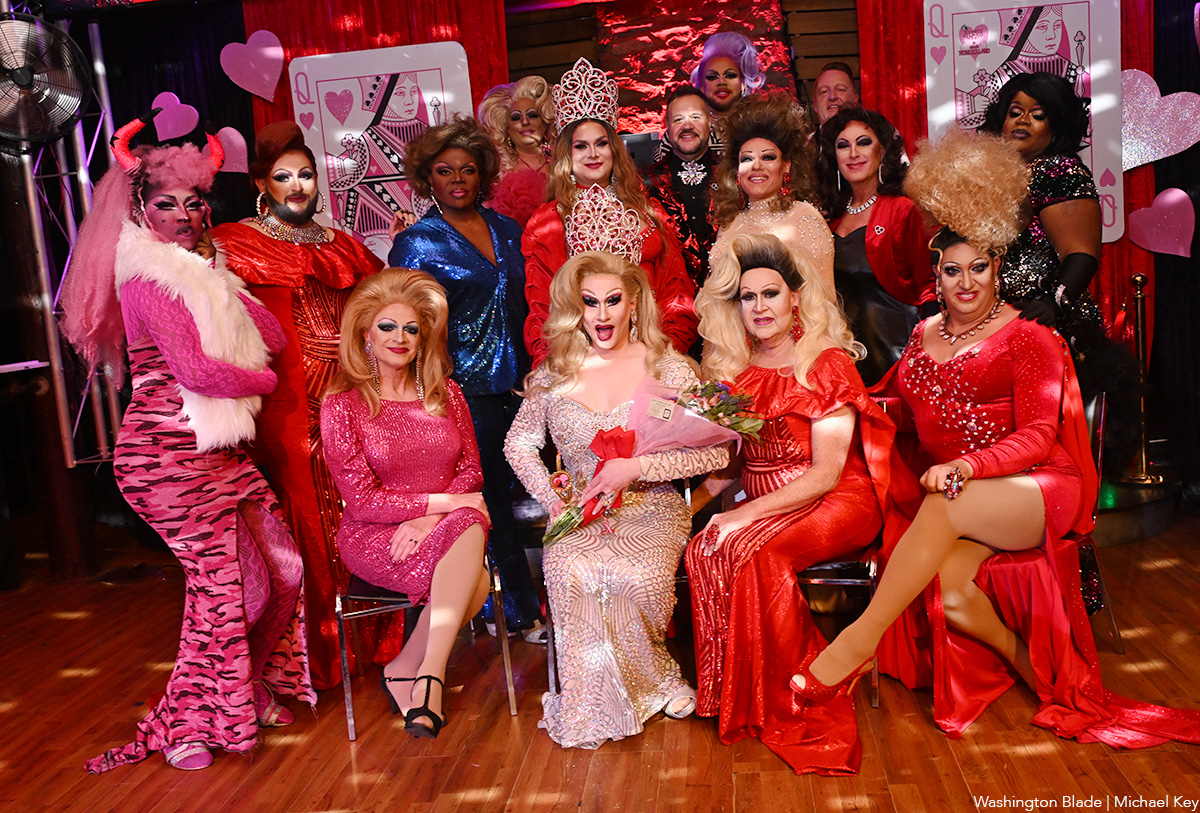
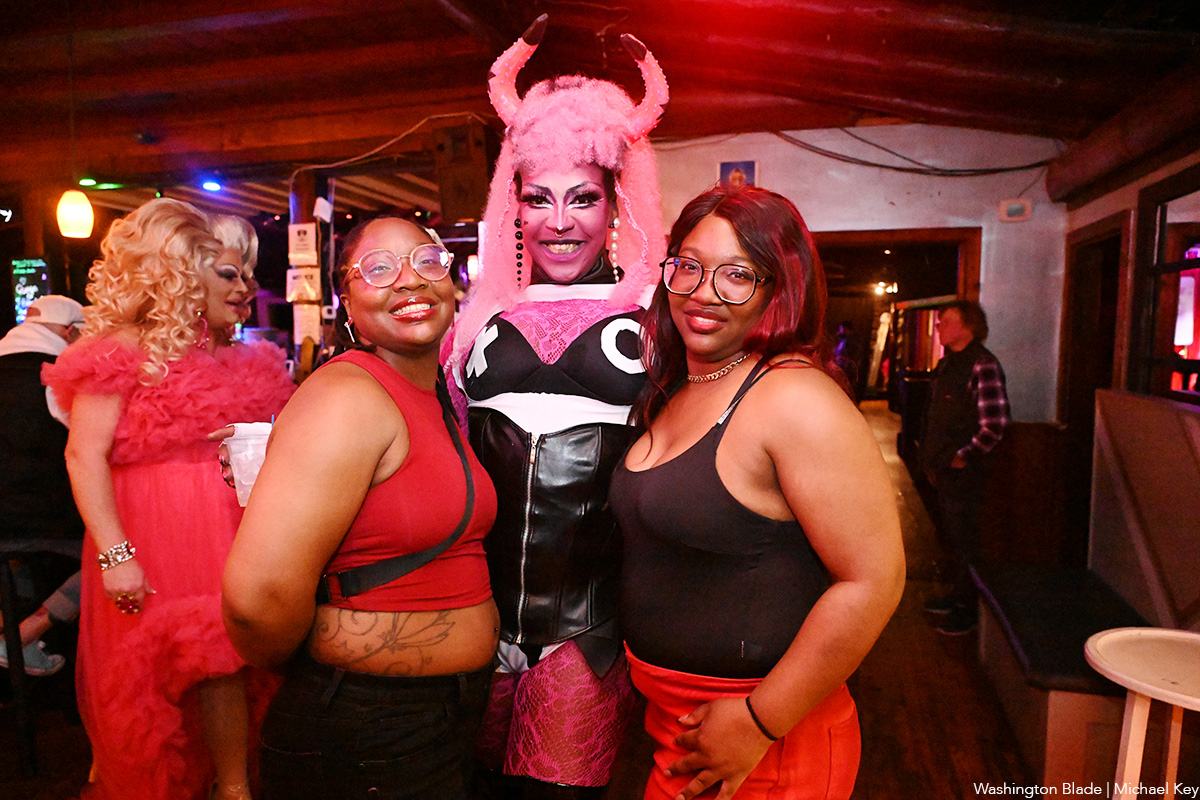
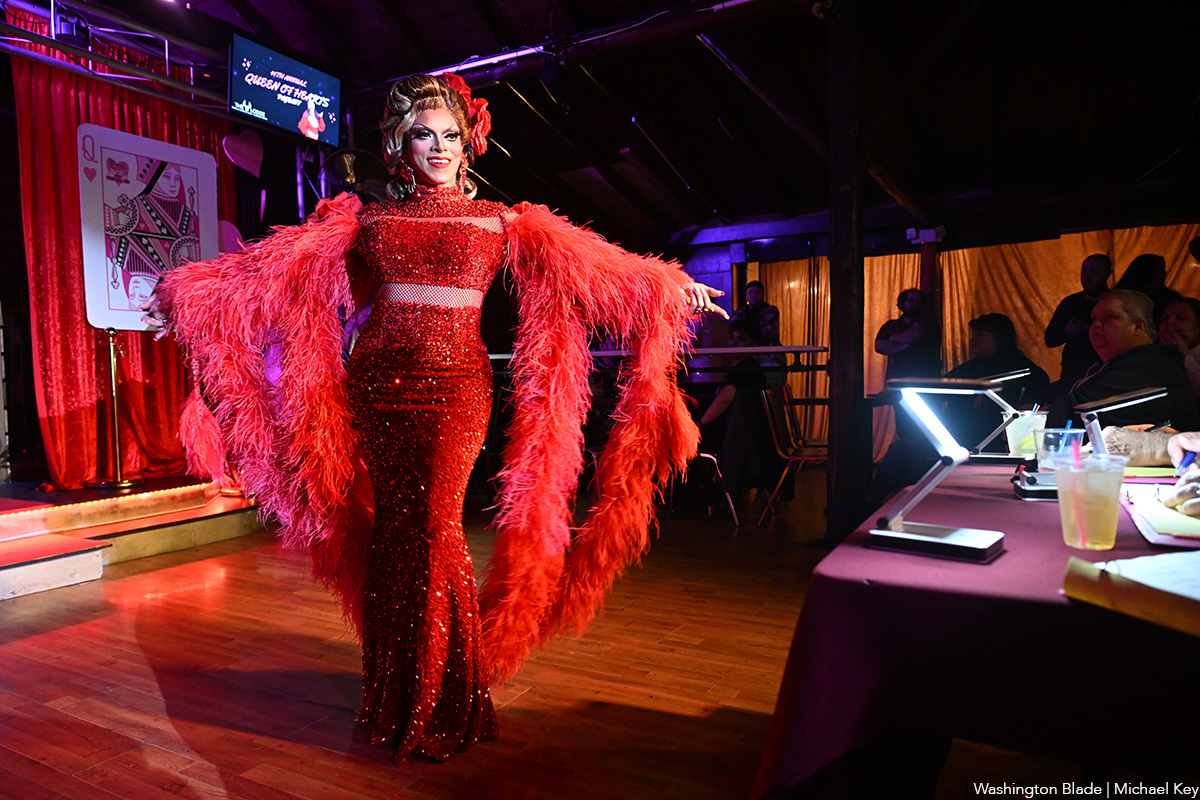
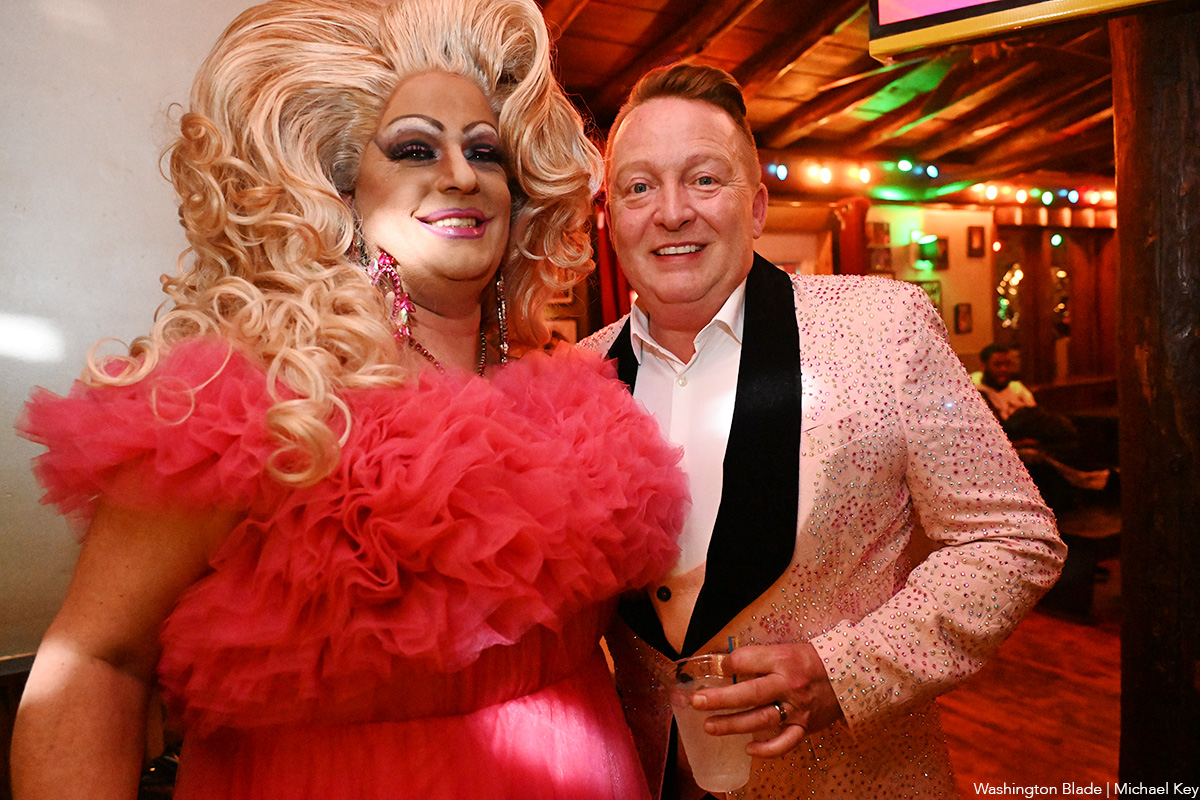
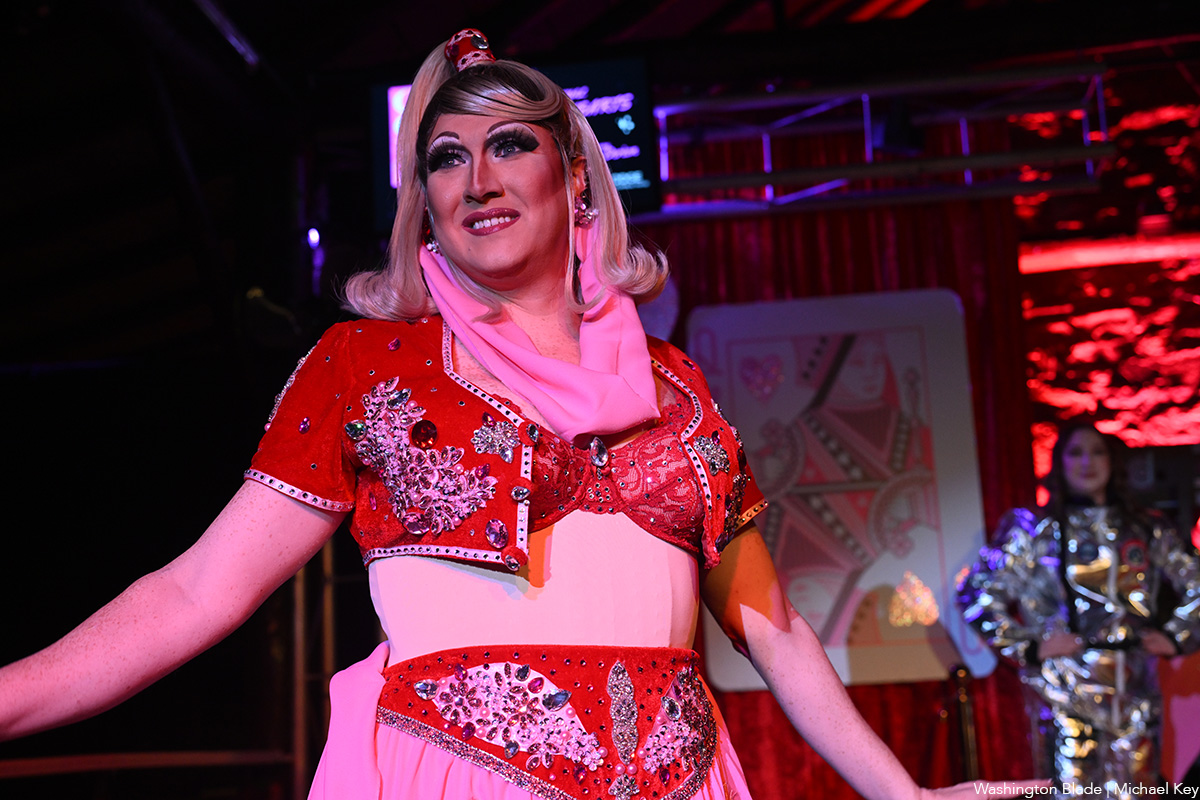
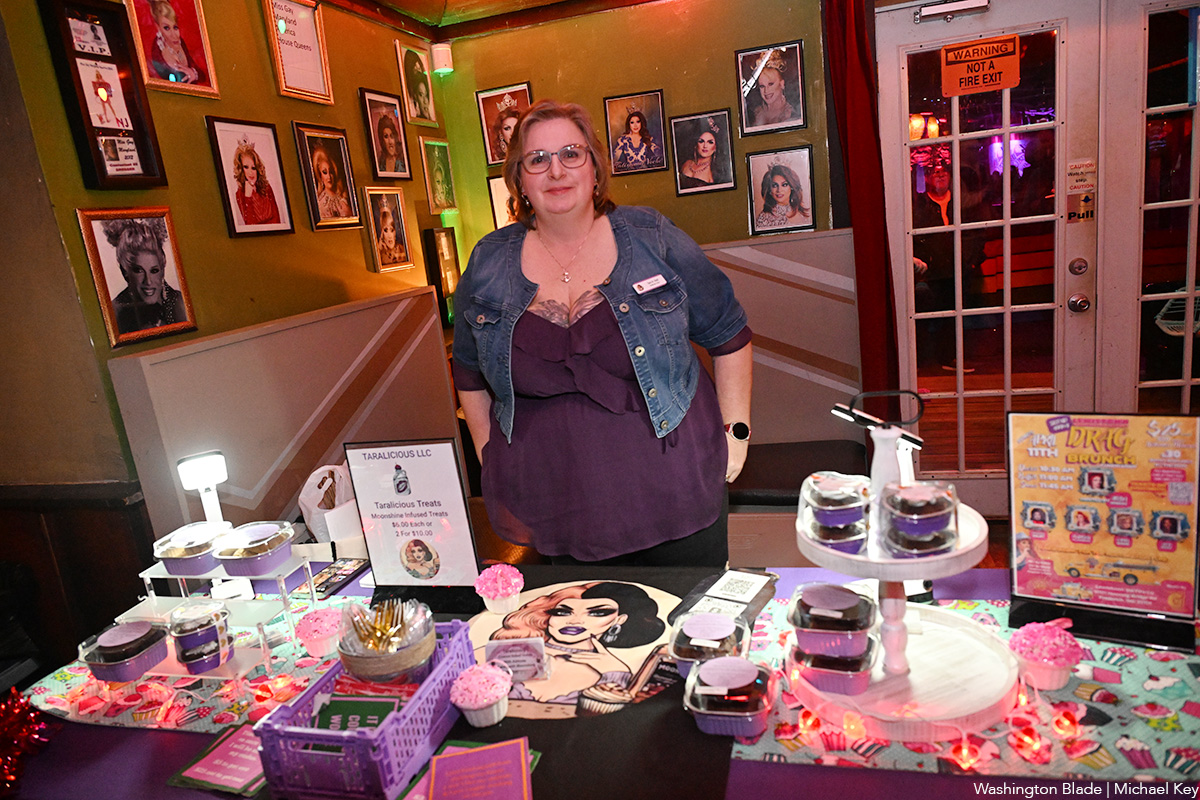
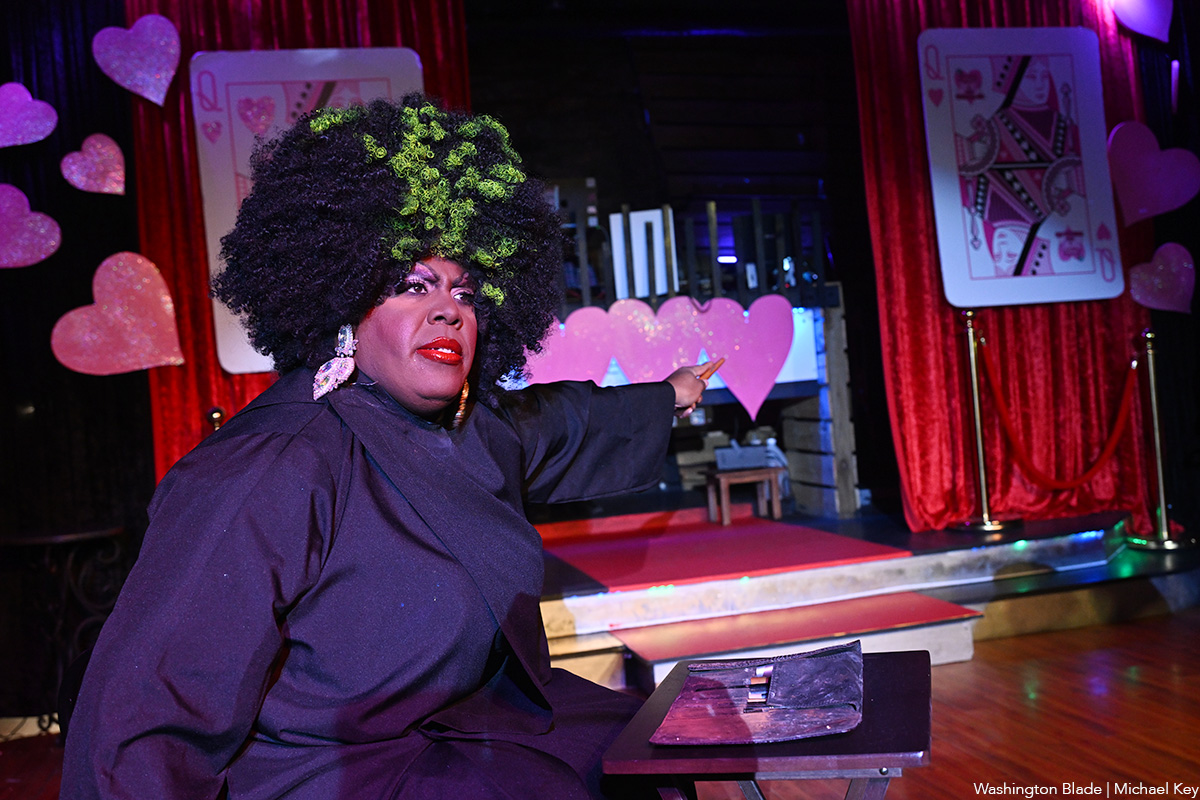
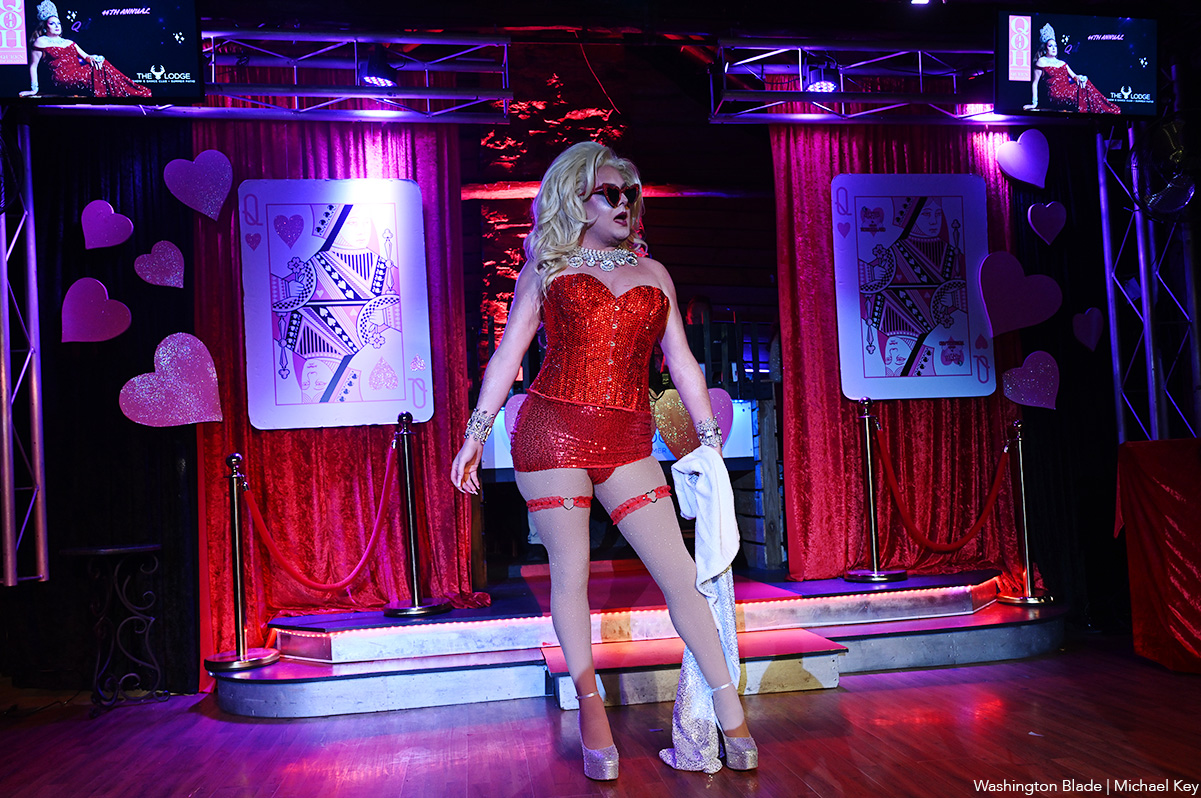
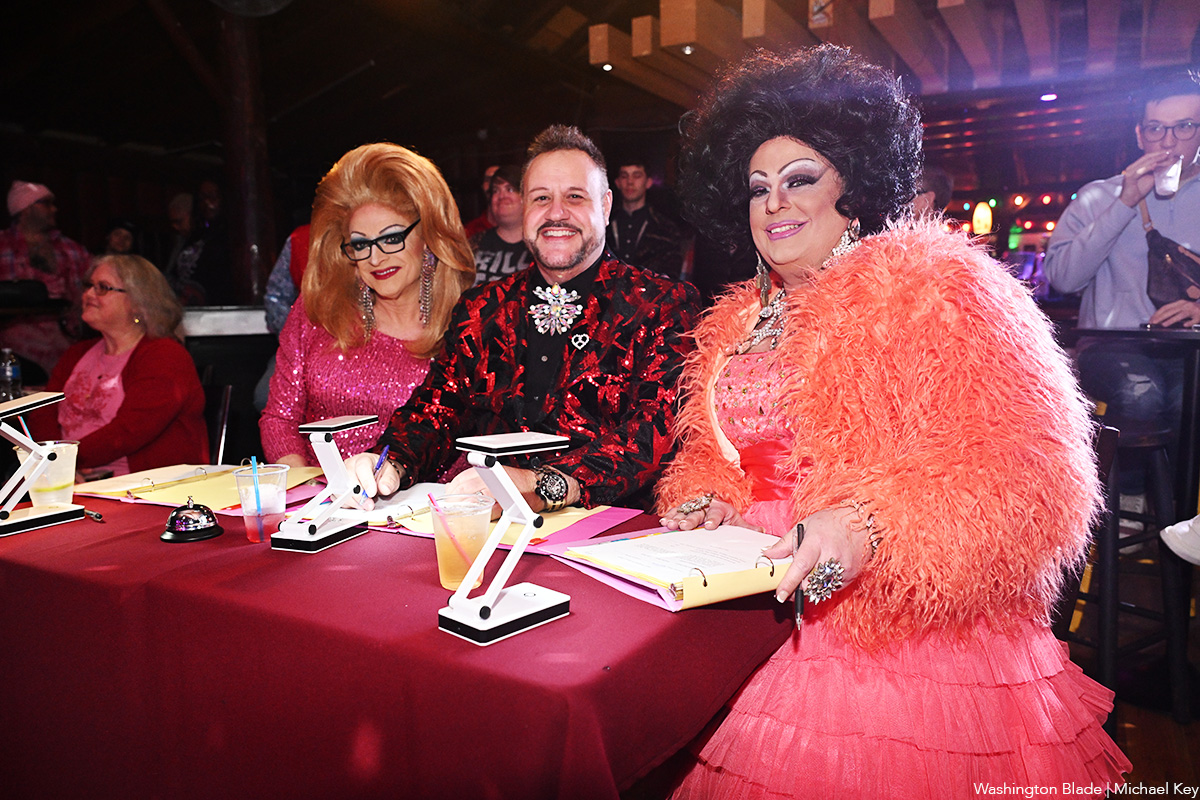
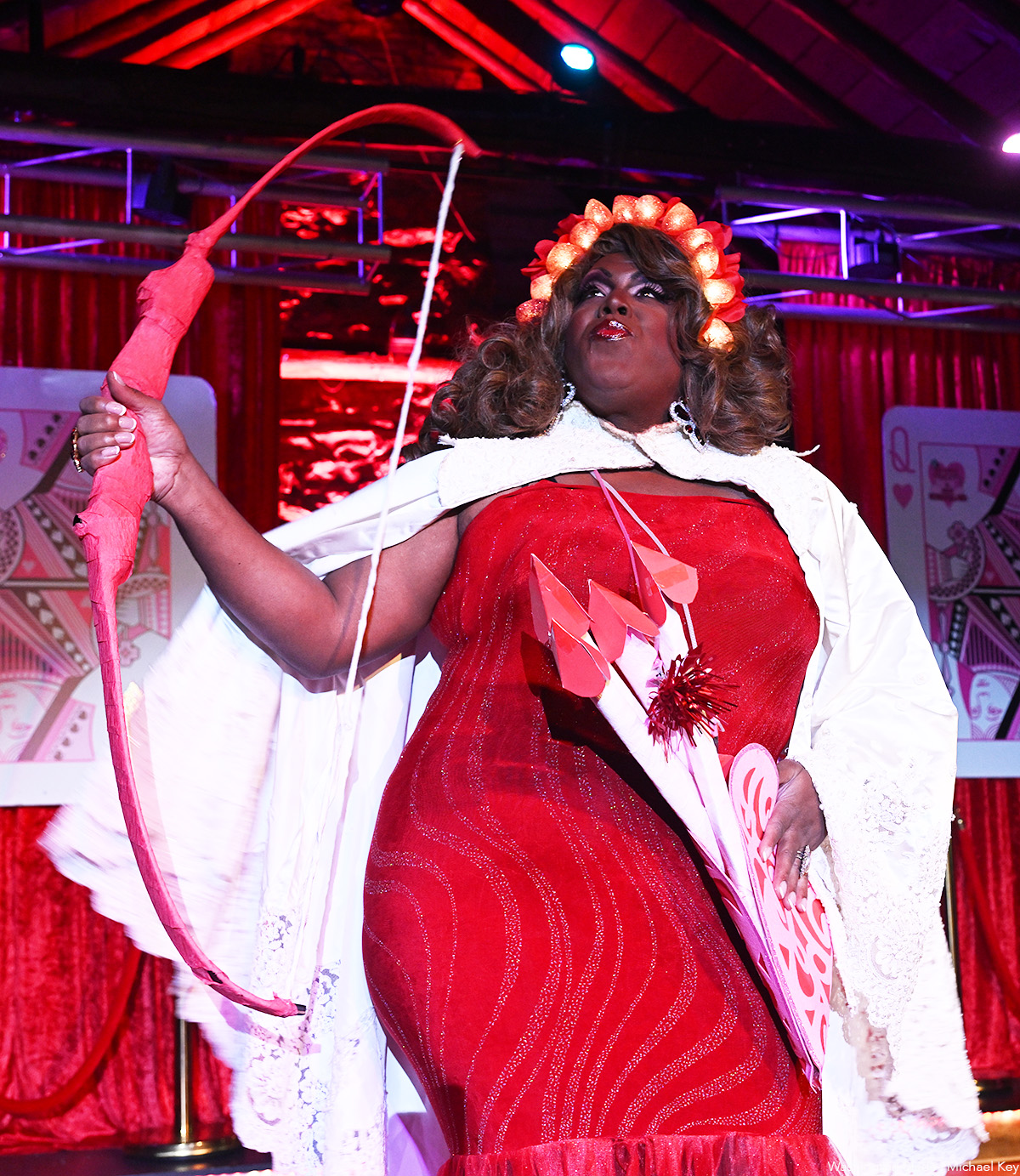
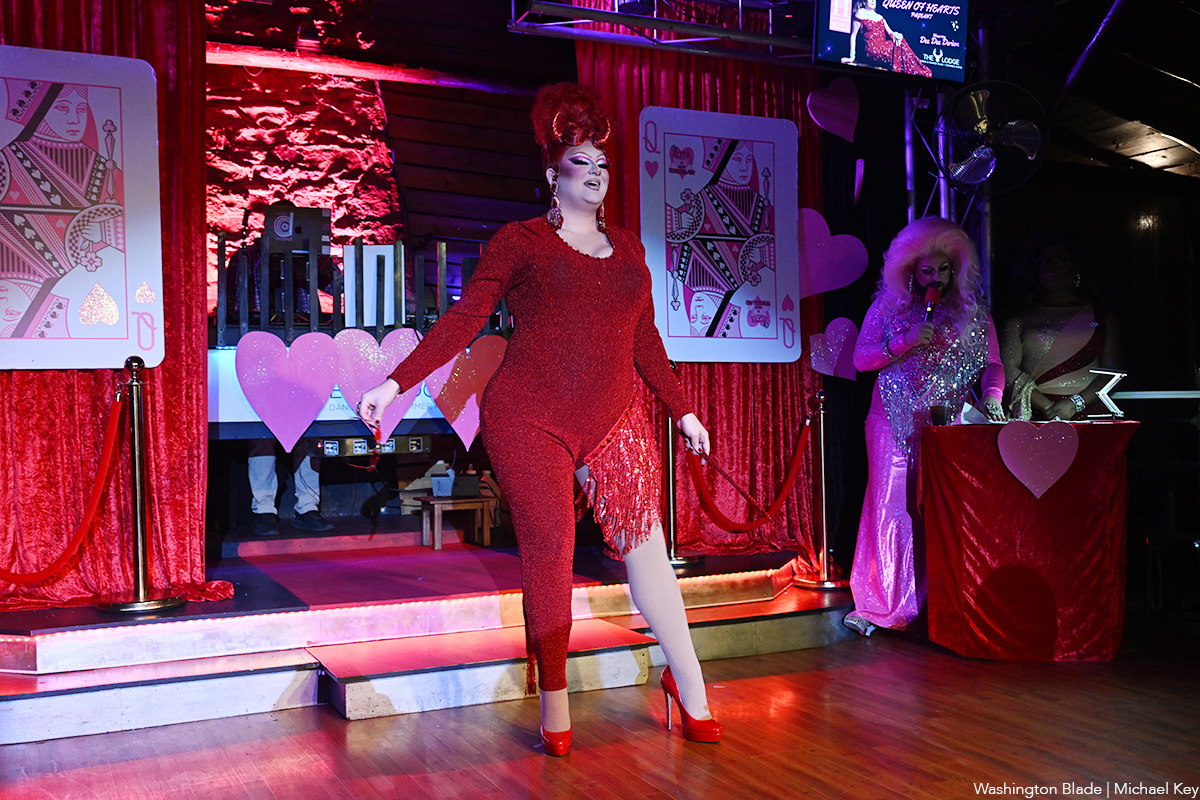
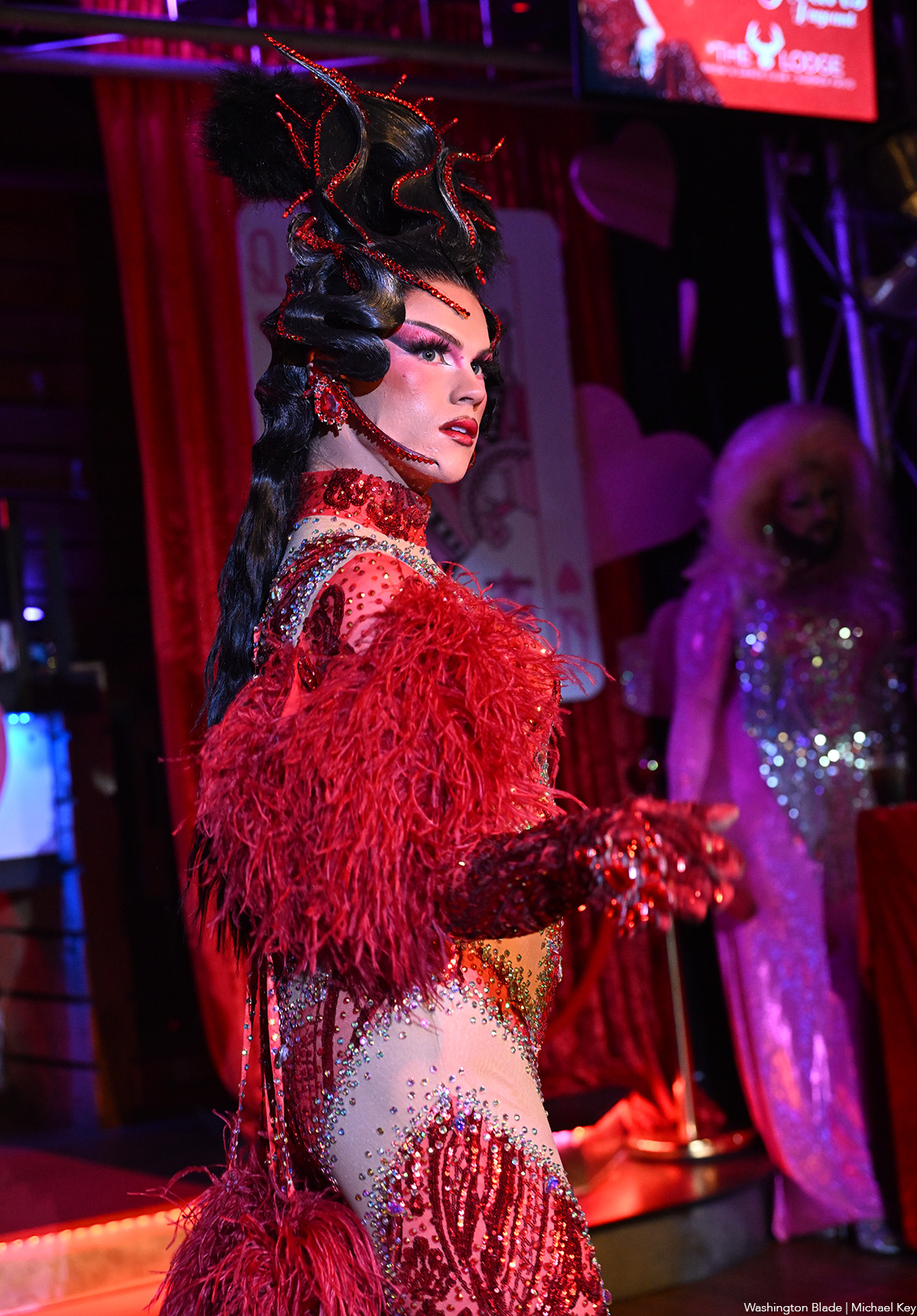
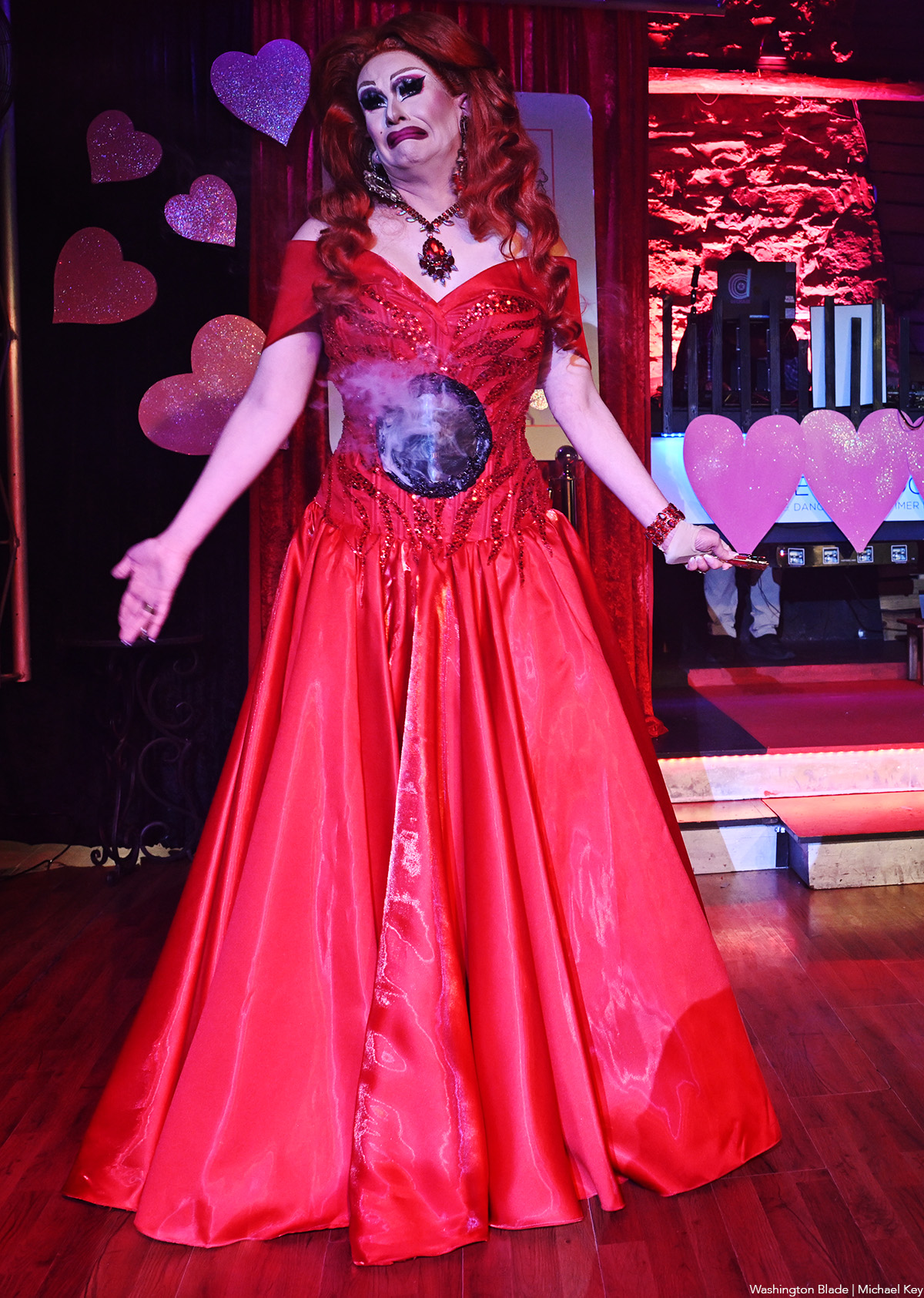
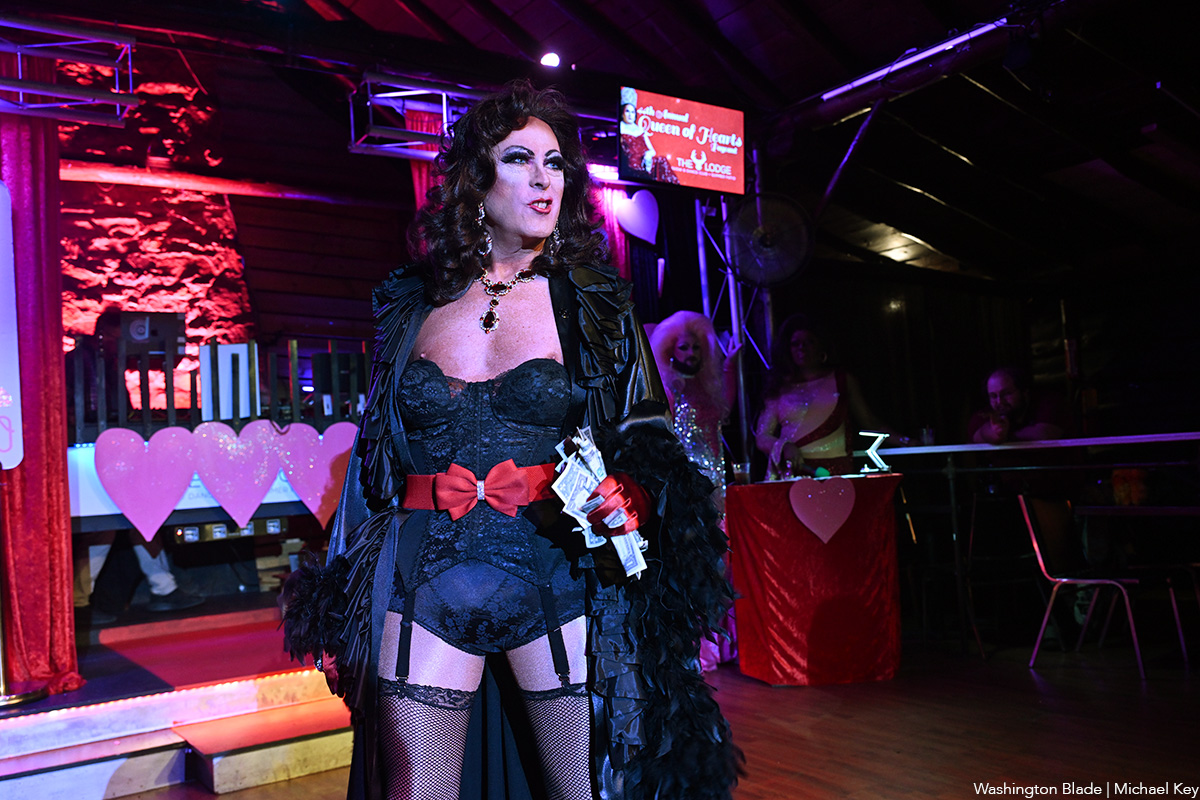
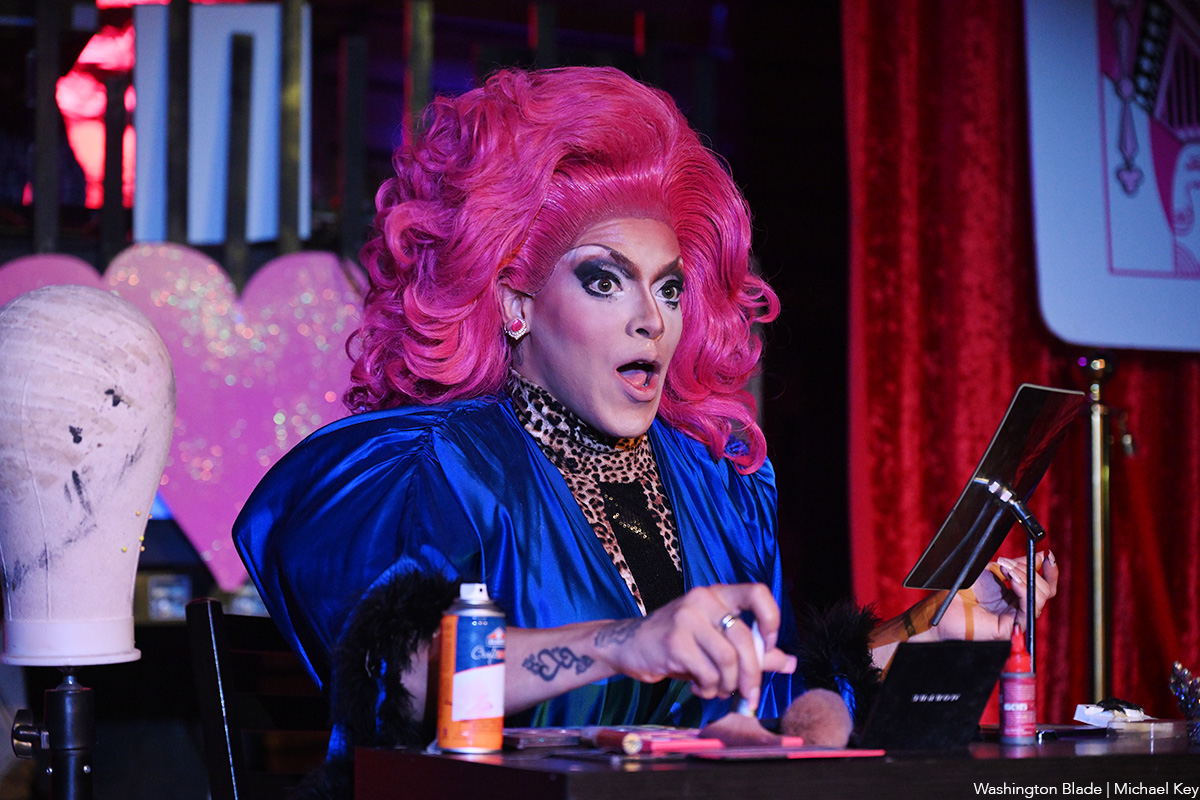
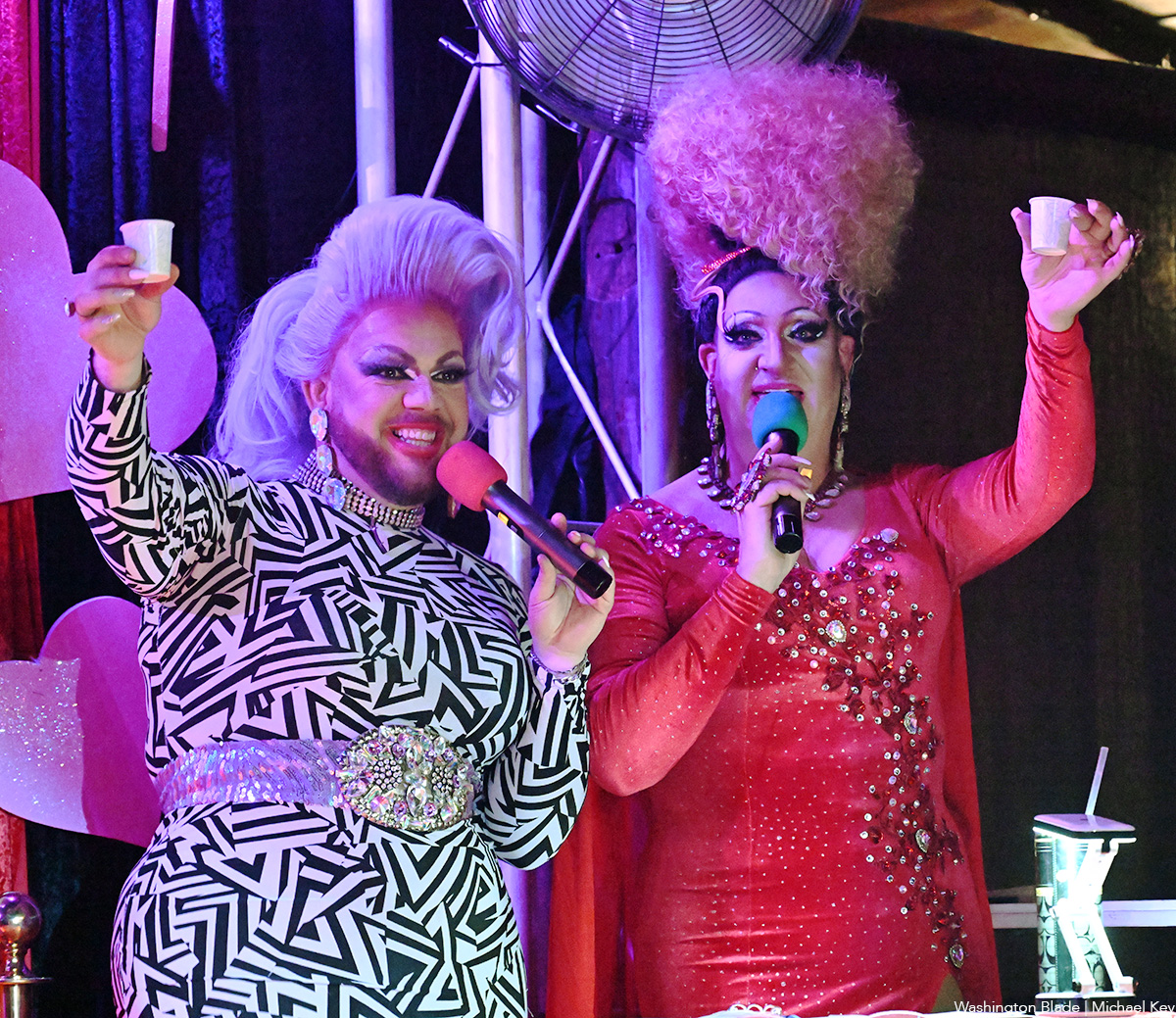
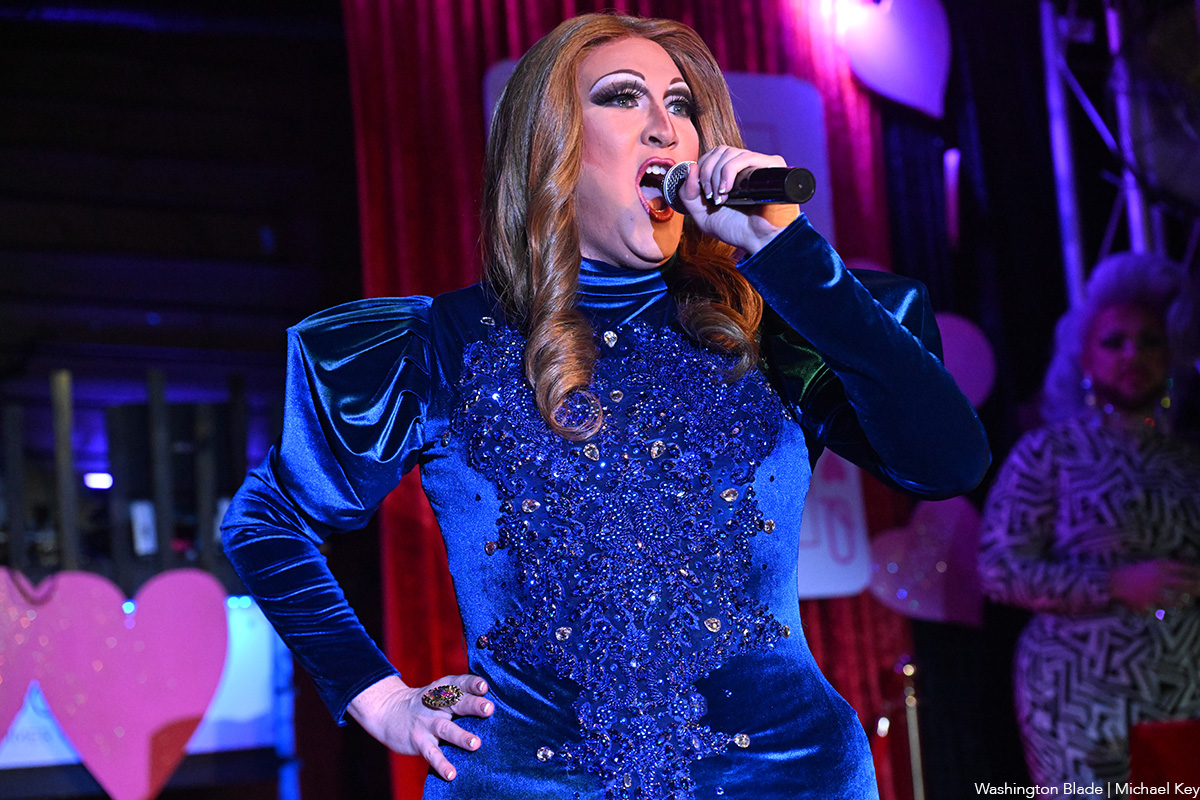
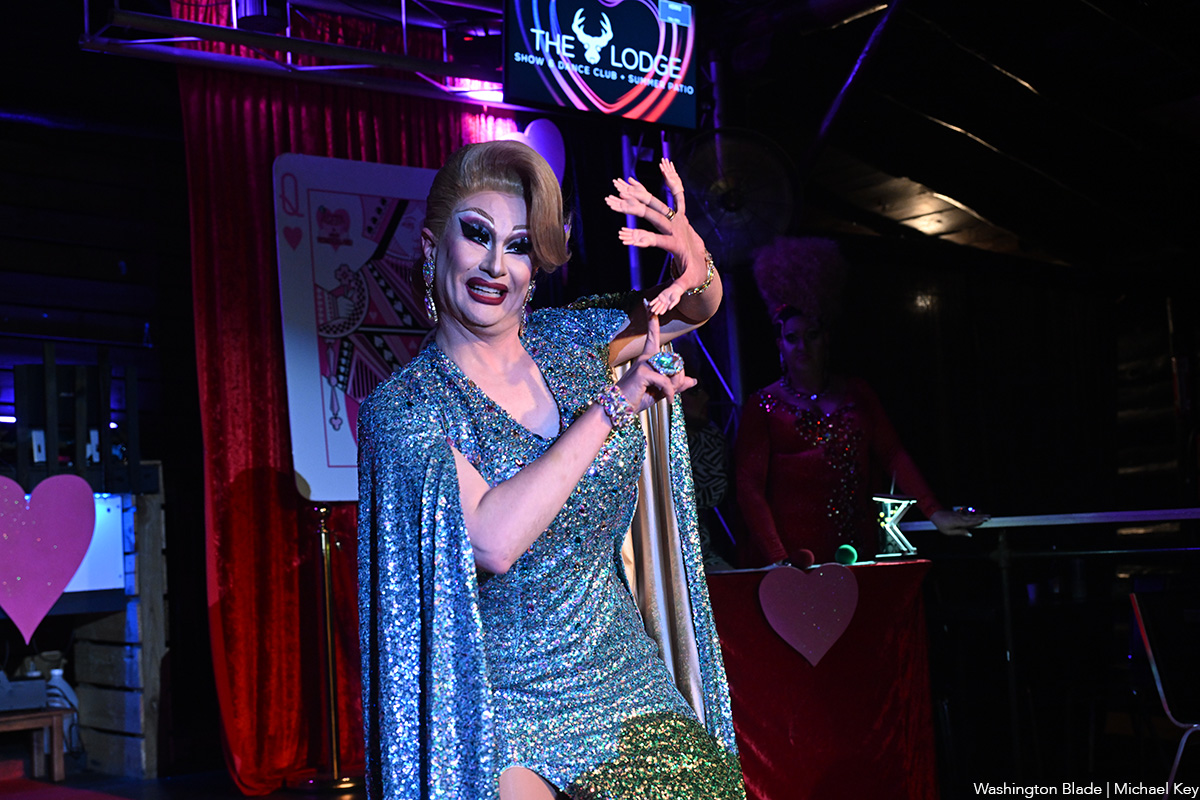
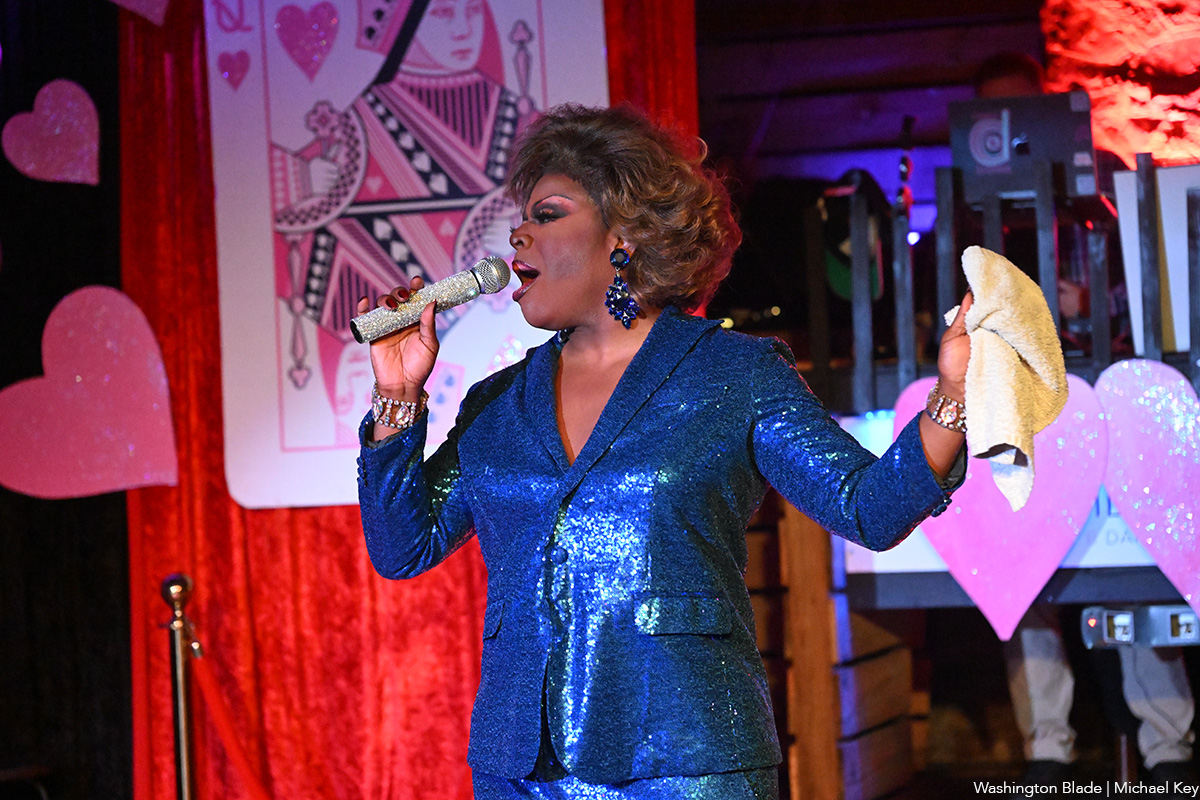
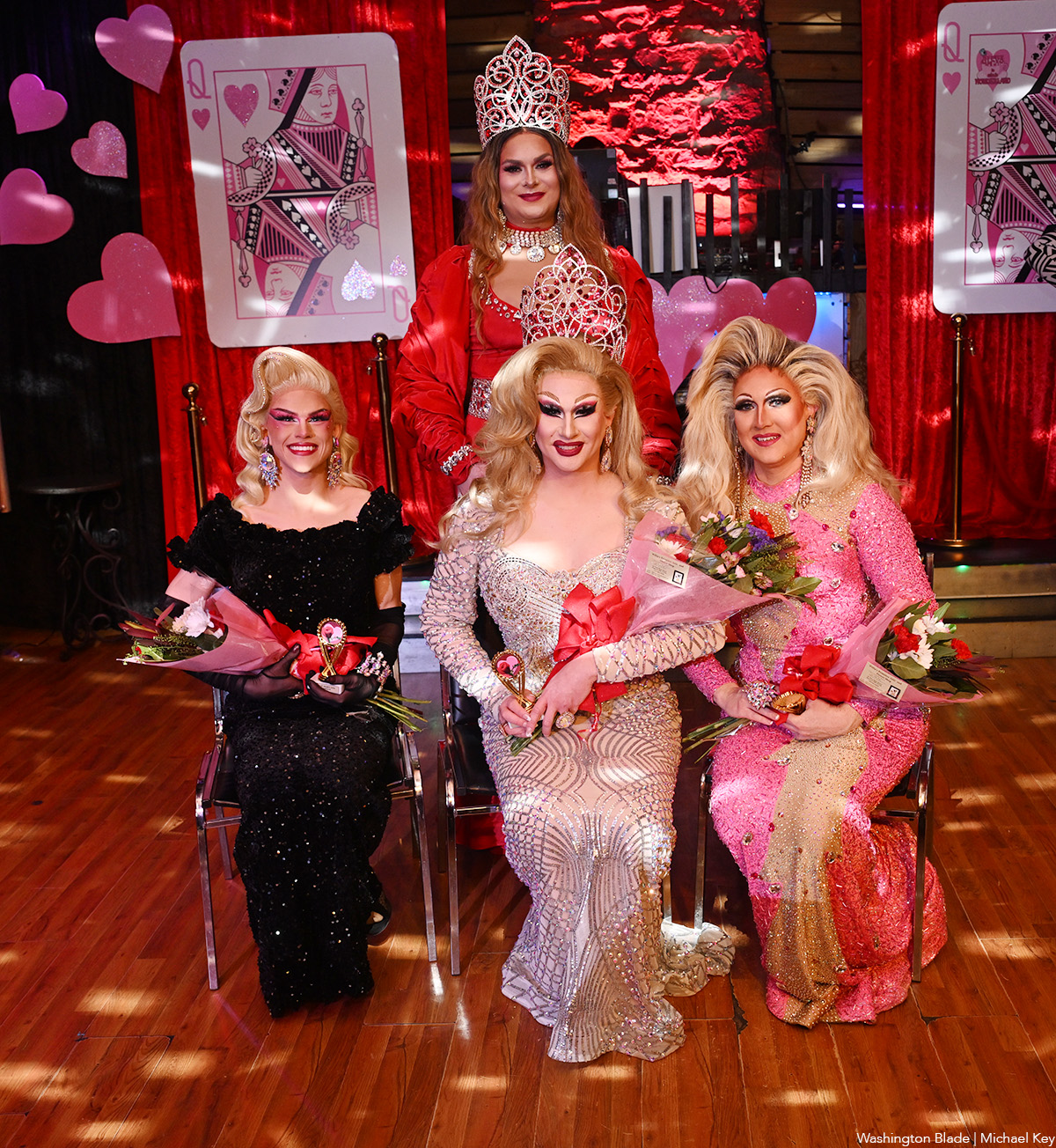
View on Threads
-

 Mexico4 days ago
Mexico4 days agoUS Embassy in Mexico issues shelter in place order for Puerto Vallarta
-

 Real Estate4 days ago
Real Estate4 days ago2026: prices, pace, and winter weather
-

 Theater4 days ago
Theater4 days agoJosé Zayas brings ‘The House of Bernarda Alba’ to GALA Hispanic Theatre
-

 Netherlands4 days ago
Netherlands4 days agoRob Jetten becomes first gay Dutch prime minister





